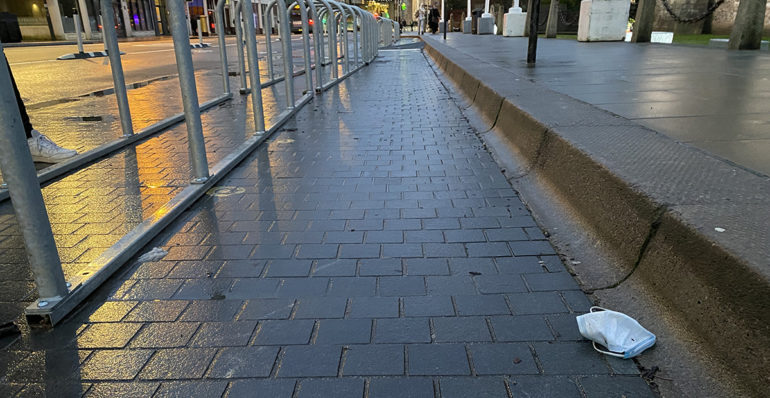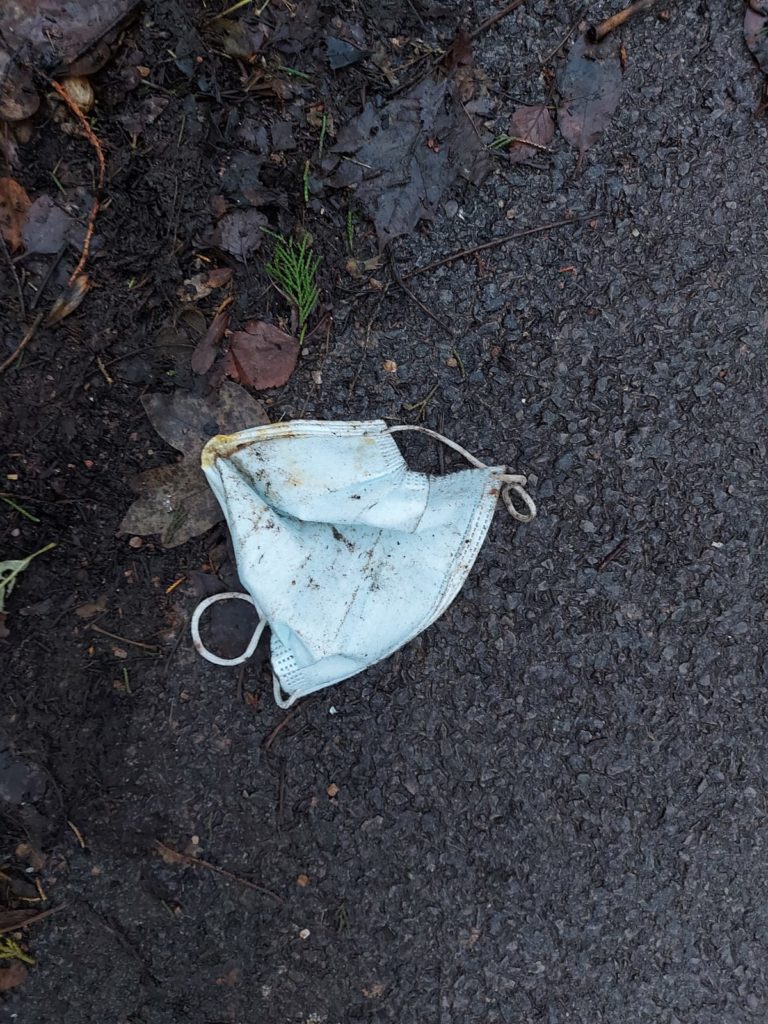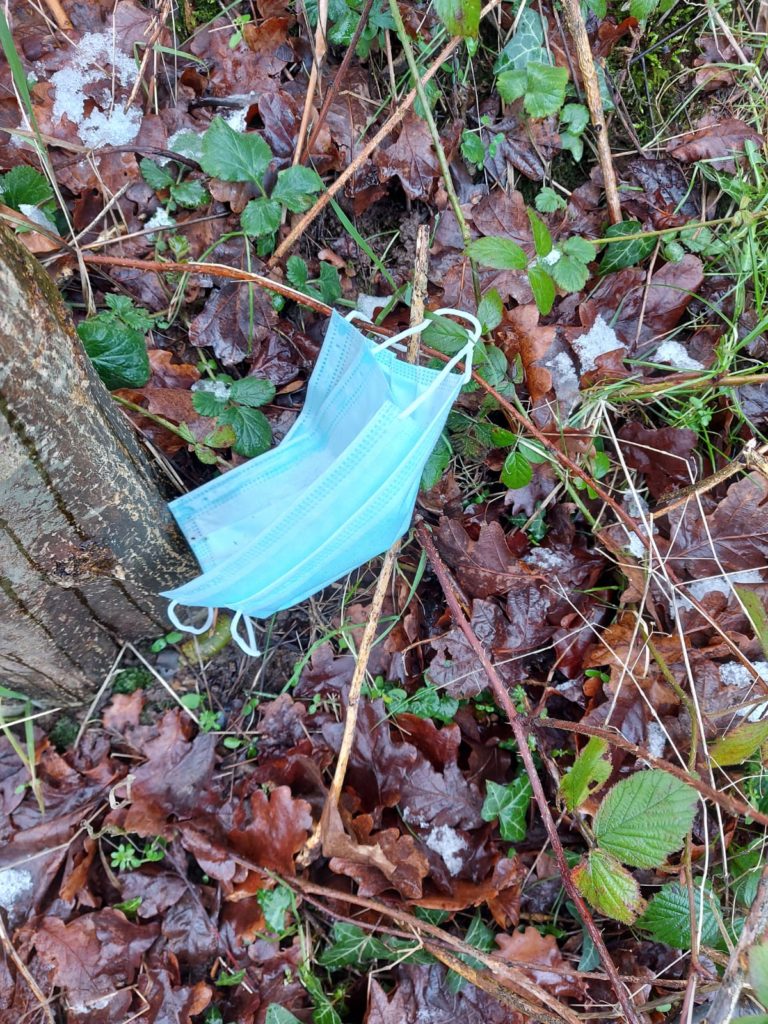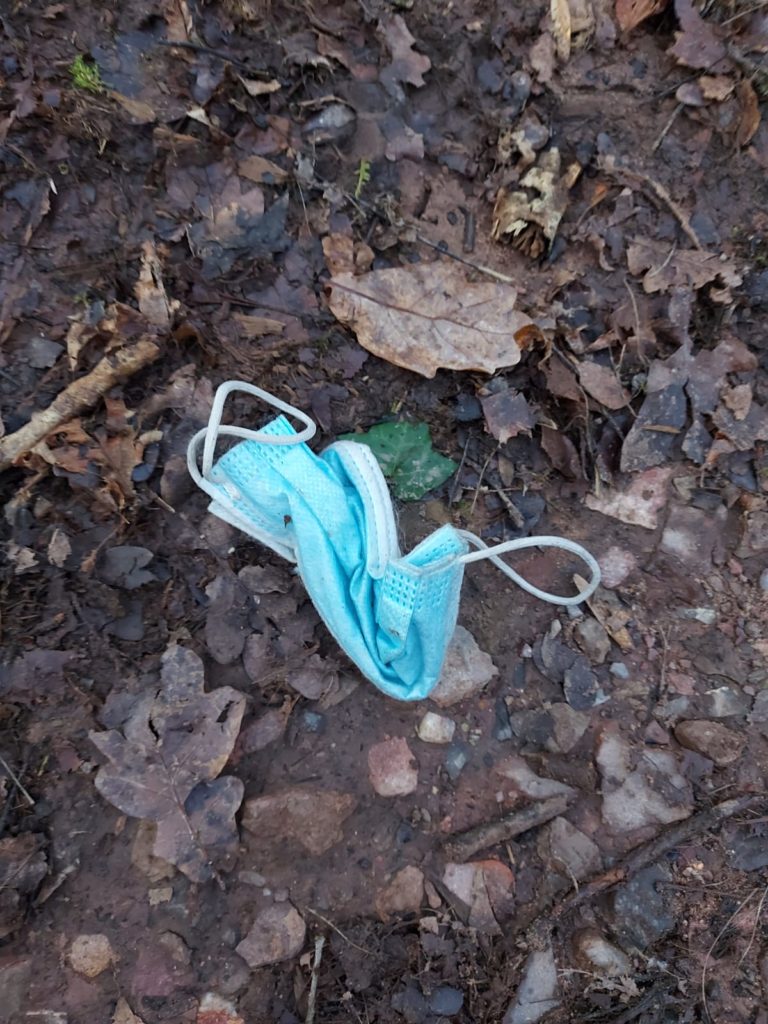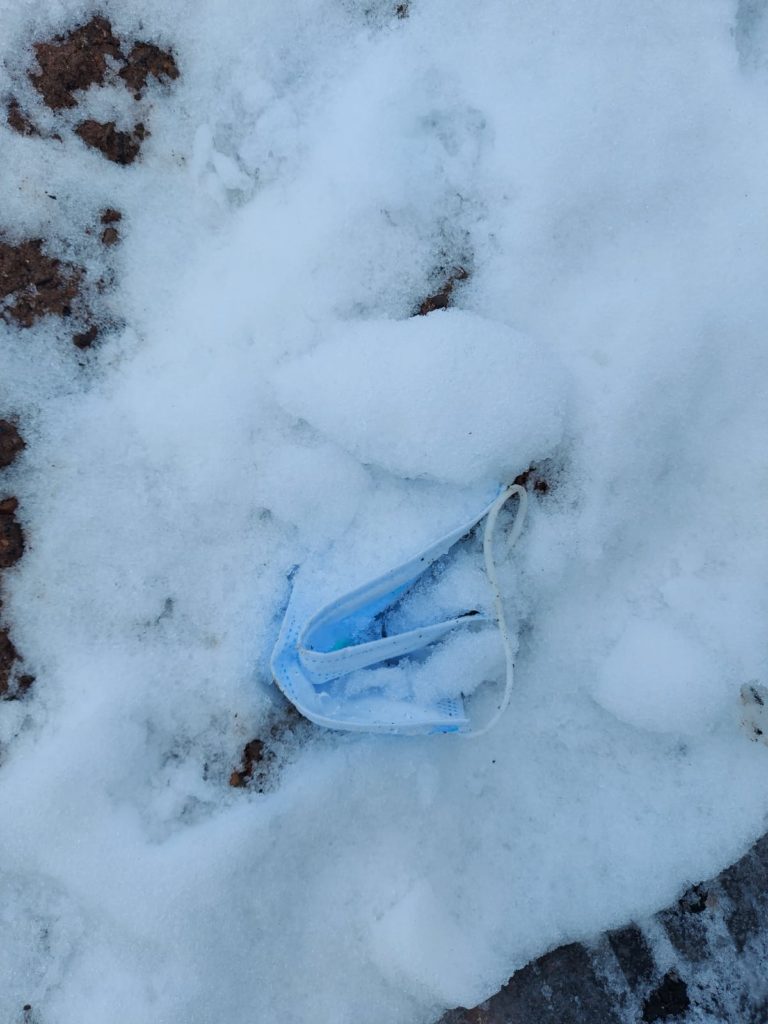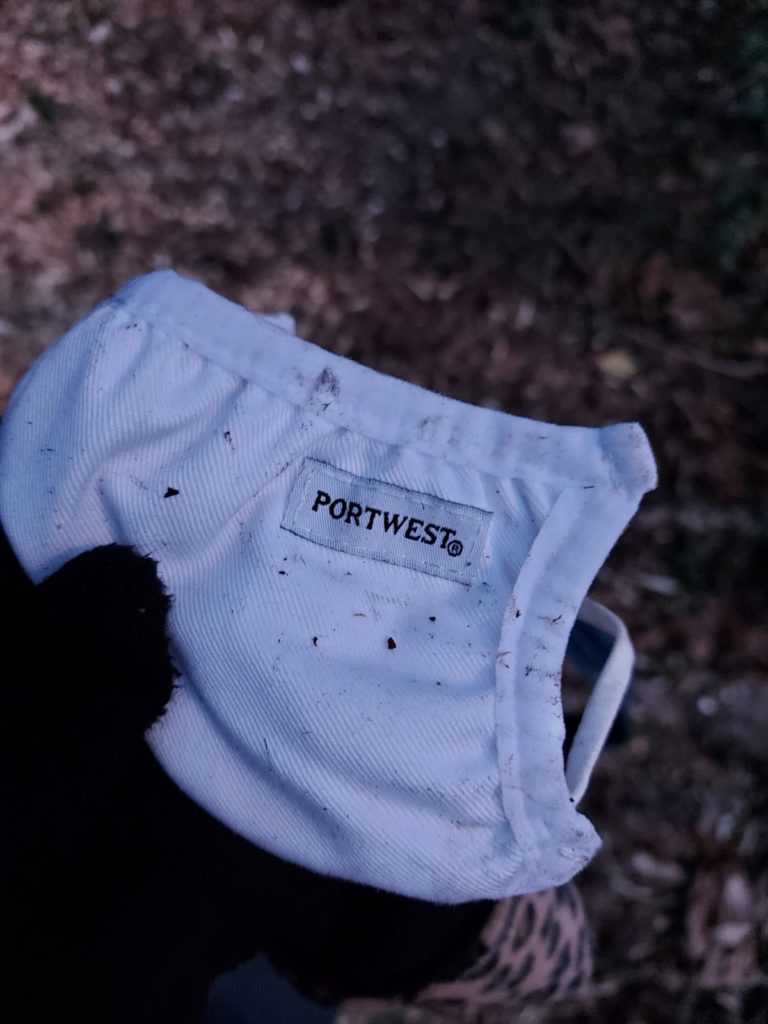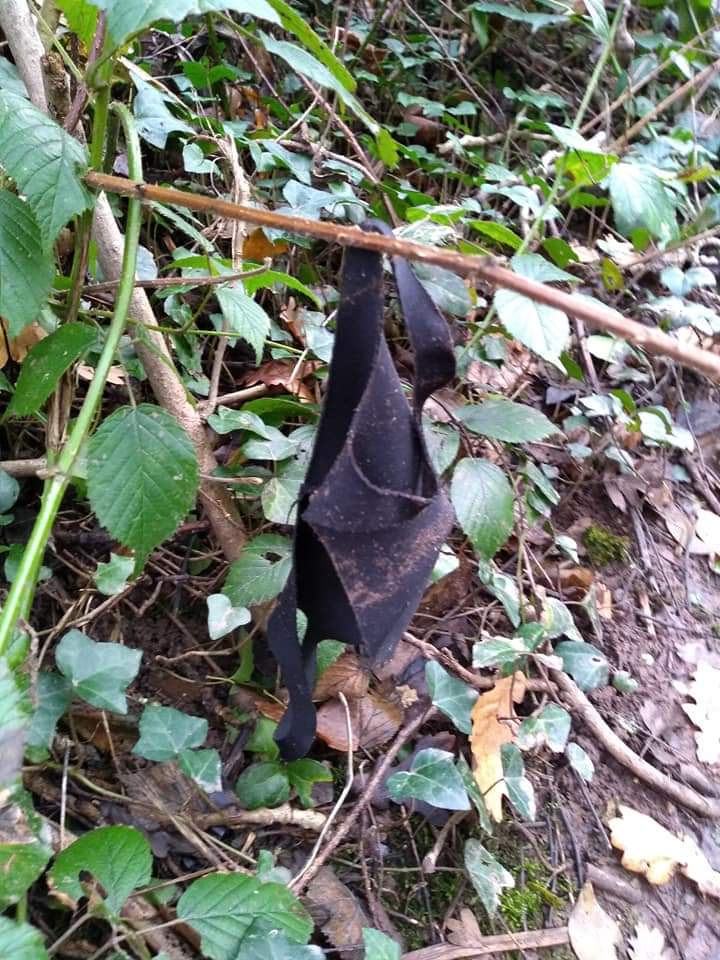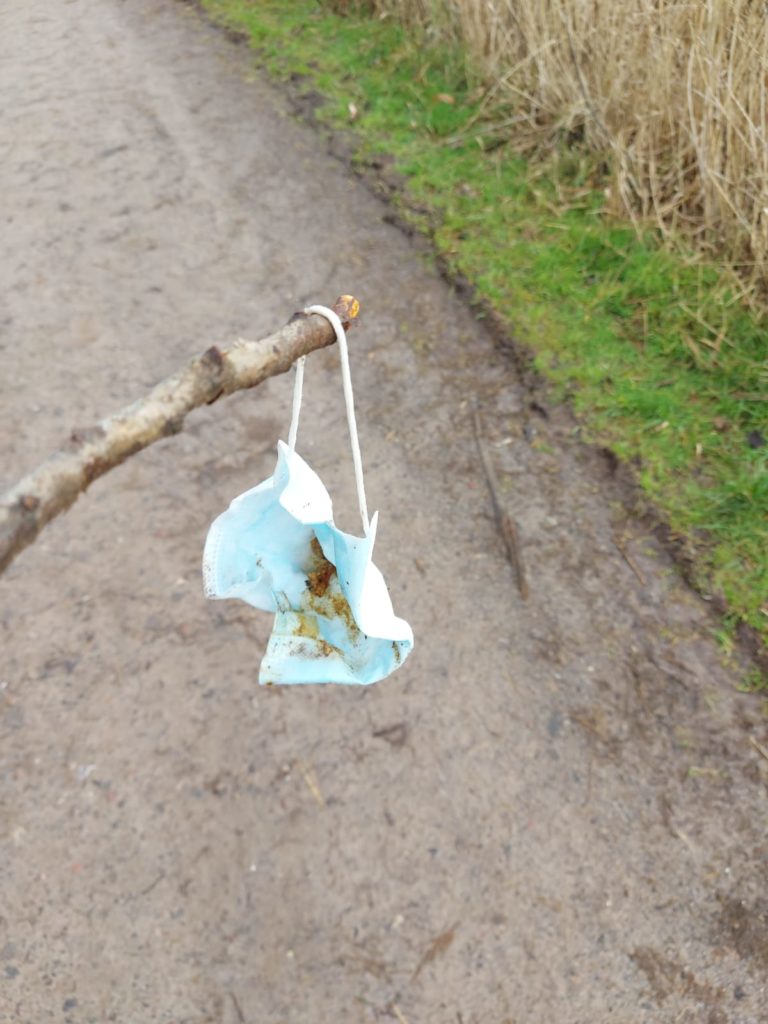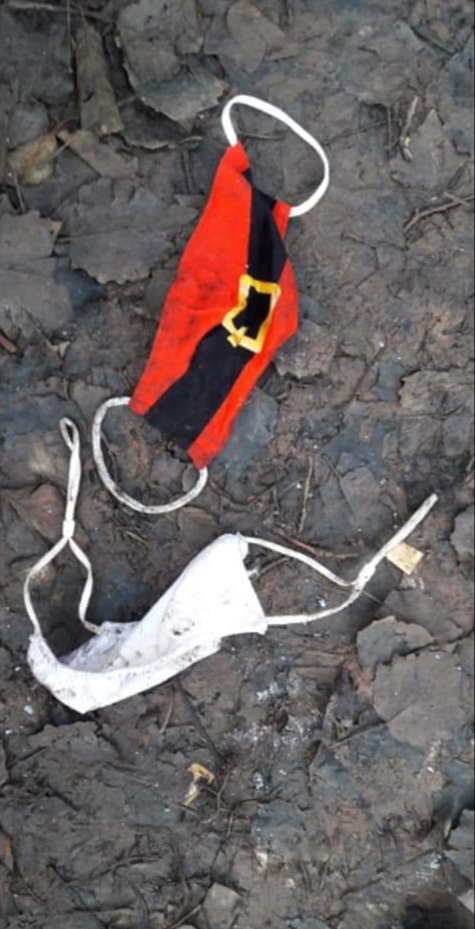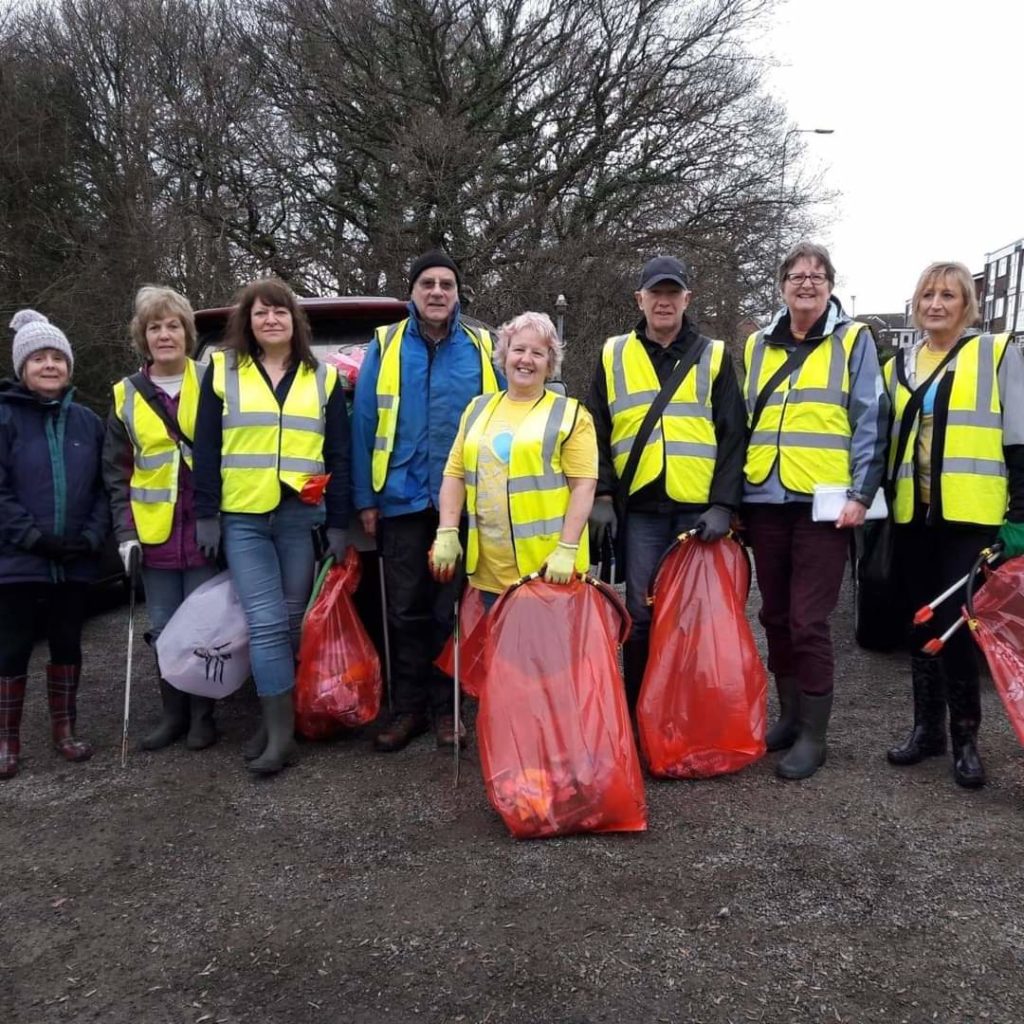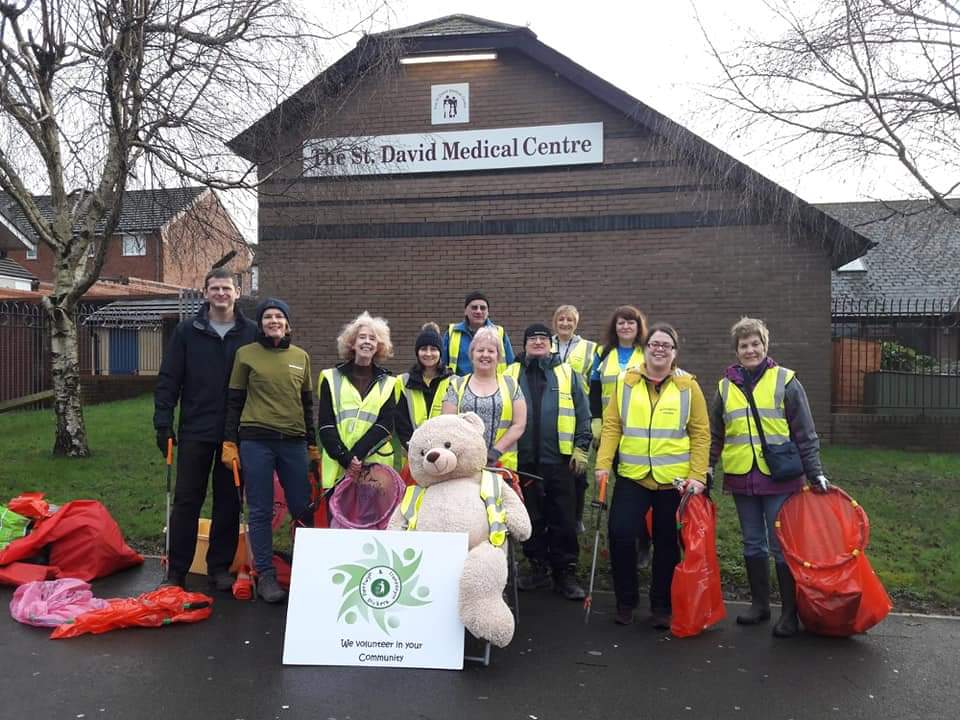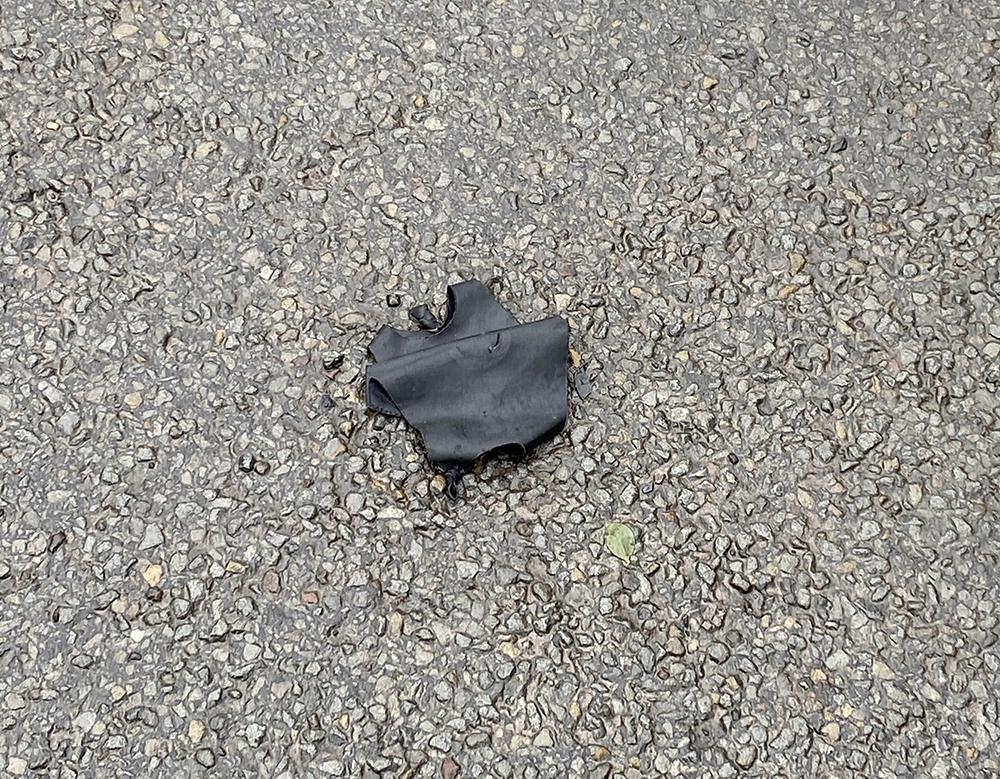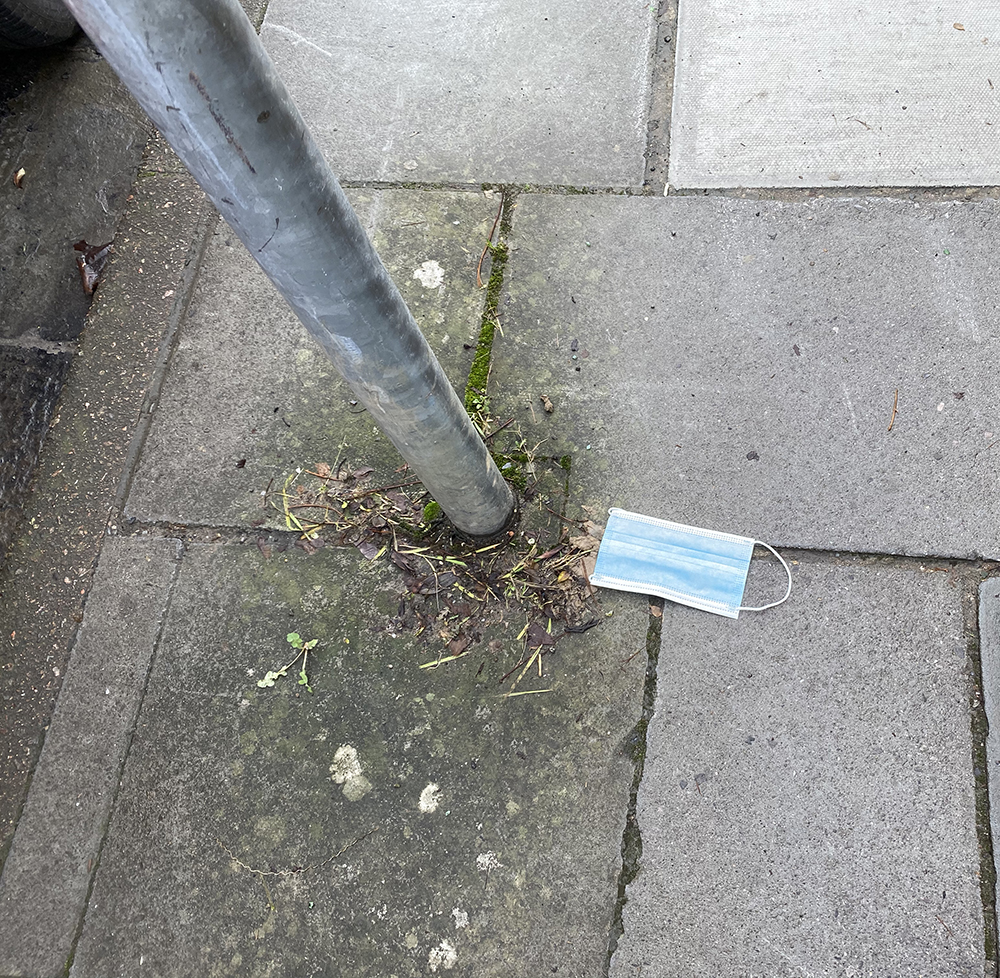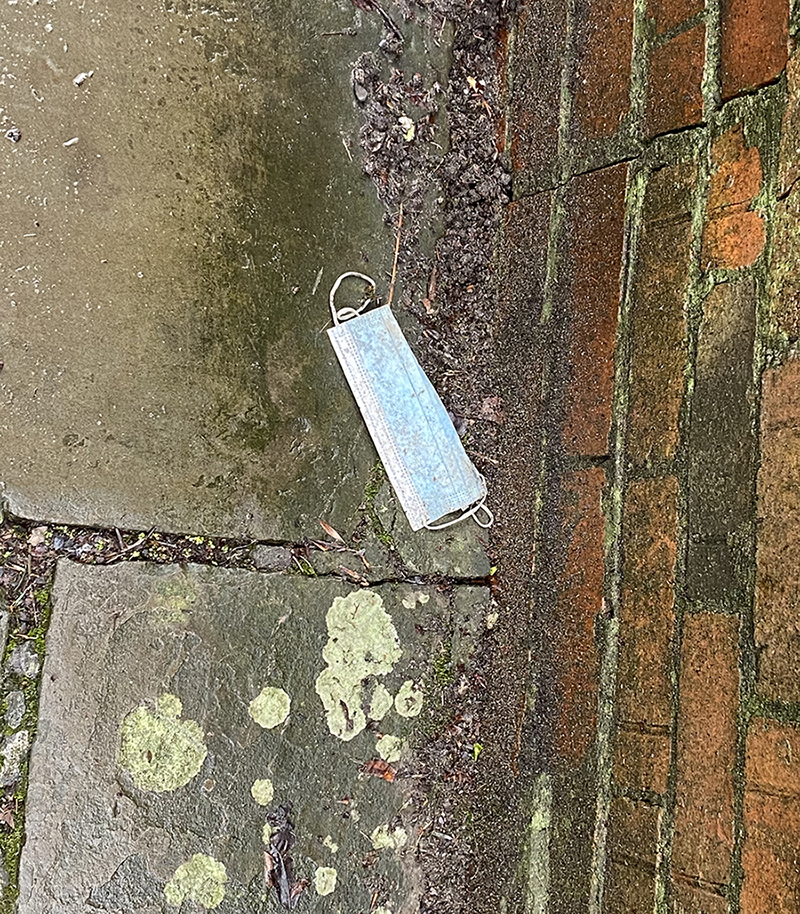Masks create a new problem for litter picking groups in the city
THE last year has seen a huge rise in the number of disposable masks and gloves purchased and worn in the UK due to the Covid pandemic.
But Cardiff, like other major cities, has also seen a rise in litter caused by people discarding their face masks.
Cardiff Council say that anyone caught littering will face a fine of £100, but many offenders are never caught as they dispose of their rubbish in public places.
Litter-picking groups across the city report a rise in litter in the last year and, for many teams, a change in the type of litter they are finding.
Keep Rhiwbina Tidy chair Lynne Forryan said: “We have around 100 volunteers in our group, which is one of the youngest groups in Cardiff. We find all sorts of things, but in the last year there has been a big increase in PPE. We mostly find them near shops and cars.”
At the Rhiwbina Clean Up in October, three litter pickers collected 24 face masks around Rhiwbina Village in just one hour.
Discarded face masks have the potential to infect litter pickers with Coronavirus, as the virus can survive on a plastic-based surgical mask for up to seven days.
Pentwyn and Llandeyrn Pickers member Sue Elias said: “They’re everywhere. We often find masks around where cars park. The pandemic has meant we can’t do group picks, but our members are still going out alone or with their household.”
In a recent litter pick, Sue collected six masks in an hour and a half in her local area. She said that the group pick up bags of litter as well as discovering fly tipping and reporting this to the council.
In the medium-term, animals and plants are also affected by discarded masks. If the volume is significant enough, face masks can smother an ecosystem. In Cardiff, this could mean that animals such as birds and squirrels would become trapped in the loops of a mask, as most wearers are not cutting them before throwing them away.
In Cardiff’s rivers and lakes, masks could suffocate or choke fish and other animals. If left unaddressed, plastic-based masks will eventually break down into harmful micro-plastics which can be toxic to local species.
University College London found that UK demand for face masks will be 24.7bn each year, if everyone wore disposable masks but that would drop to 136m if they wear reusable masks.
Each disposable mask can only be worn for up to one day, but can take 450 years to completely break down.
Cardiff’s litter problem is widespread, and there are groups across the city which have been set up to combat this issue. All are volunteer-run and often have help from Keep Wales Tidy and Keep Cardiff Tidy, which provide advice and resources about waste and recycling.
One member of Keep Penylan Tidy said: “We haven’t been able to do group picks for around a year. Our members can instead borrow equipment and go out on their own.
“We have had lots of new volunteers, including children. There are loads of face masks– we find them everywhere. Our litter picking really creates a sense of community spirit.”
Matthew Haines, who litter picks three streets near City Road said: “We find rubbish where people park their cars. In one week, my partner and I collected 26 masks from only three streets. We see people drop their litter on our CCTV and have confronted them a few times.”
Mr Haines started litter picking his local area when he noticed how much rubbish was left each day. He has got his partner and children involved, and some of his neighbours also join him.
As many people find themselves working from home or furloughed, litter picking can be included as part of a daily exercise walk.
Anyone can sign up to the Love Where You Live scheme run by Keep Cardiff Tidy. Their pink community bags can be left on any Cardiff street or in any park, and they will be collected by the council’s cleansing crews.
Another neighbour-run initiative is on Bangor Street in Roath. Residents organise community events as well as litter picks.
Resident Lisa Watts, said: “We haven’t properly done a group litter pick during the pandemic. A lot of us have been working from home, so we often go out in the day to pick our street as well as the lane behind the shops. We all have to do our bit to help out.”
Face mask are rapidly becoming an environmental problem in the same way that single-use carrier bags once were.
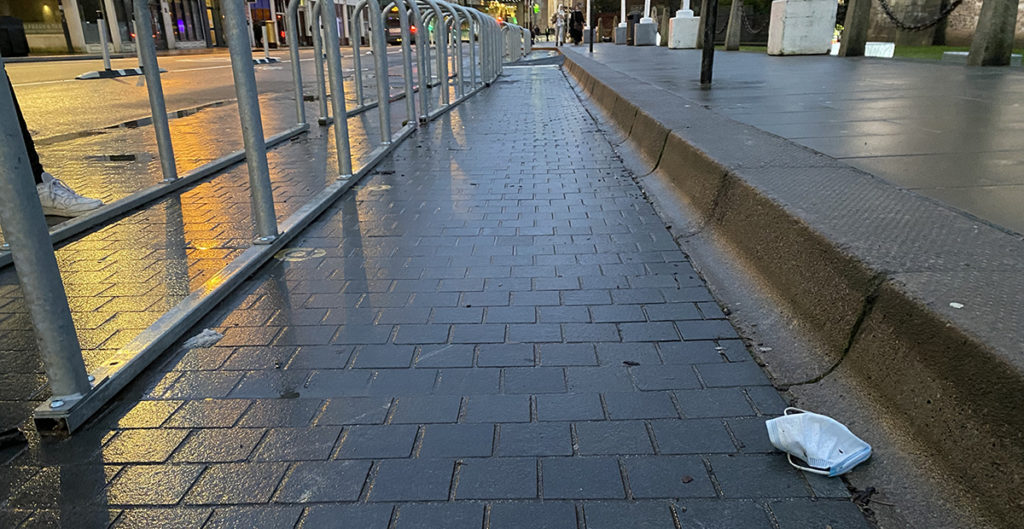
But it is not just PPE that Cardiff’s pickers find. Volunteers pickers interviewed by The Cardiffian have found sex toys, sanitary products, underwear, trainers and false teeth.
Pentwyn and Llanedeyrn pickers even found their teddy bear mascot on a pick. “We just brought him home and washed him. He is called Woody and comes on most of our group picks,” said Sue.
Wales was the first nation in the UK to introduce a charge on supermarket carrier bags. With the Senedd elections looming, will the idea of a ban on single-use masks prove popular?
Guidance published by the Welsh Government explains how most reusable face masks offer the same amount of protection as disposable ones and can be made at home using old clothes or spare fabric.
But without a shift in behaviour, single-use masks will continue to be a problem for litter pickers across the city.
For more environmental stories see below:


